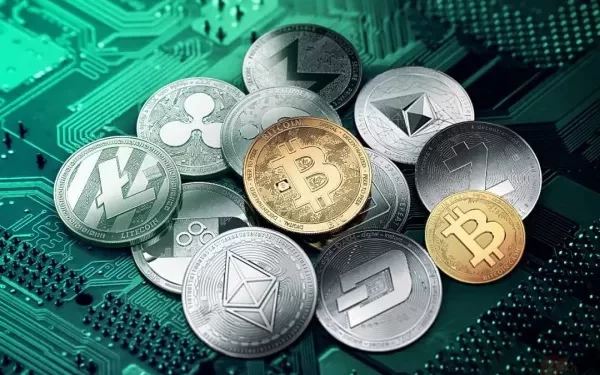In recent years, the rapid advancement of technology has led to significant changes in various aspects of our lives, including the way we conduct financial transactions. One of the most notable developments in this arena is the emergence of digital currencies. As these digital forms of value gain traction, an intriguing question arises: Is digital currency considered money? This article delves into this question, highlighting key concepts and discussing the evolving nature of money in the digital age.
The Concept of Money: A Brief Overview
Money has been a fundamental aspect of human civilization, serving as a medium of exchange, unit of account, and store of value. Traditionally, physical currencies like coins and paper bills fulfilled these functions. However, the advent of the digital era has introduced new possibilities, giving rise to digital currencies.
What is digital currency?
Digital currency refers to a form of currency that exists only in digital or electronic form, lacking a physical counterpart. Unlike traditional fiat currencies issued by governments, digital currencies are often decentralized and rely on cryptography for security. Bitcoin, introduced in 2009, was the pioneering digital currency, opening the doors to an array of alternative digital assets.
The Characteristics of Money and Digital Currencies
To evaluate whether digital currency can be classified as money, it’s crucial to assess its adherence to the fundamental characteristics of money: medium of exchange, unit of account, and store of value.
1. Medium of Exchange
A medium of exchange is a function of money that facilitates transactions by eliminating the need for barter. Digital currencies, such as Bitcoin and Ethereum, have increasingly been accepted as payment for goods and services by a growing number of merchants and businesses. This adoption is a strong indicator of their role as a medium of exchange.
2. Unit of Account
A unit of account serves as a common measure of value for goods and services. While the value of digital currencies can be volatile, they are increasingly being used as a unit of account in various online ecosystems. Some platforms price their products and services in terms of digital currencies, indicating their growing role as a unit of account.
3. Store of Value
A store of value retains its worth over time. This characteristic has been a subject of debate in the realm of digital currencies due to their volatility. While some individuals view digital currencies as a hedge against traditional economic instability, others remain cautious due to the frequent price fluctuations. The jury is still out on whether digital currencies can consistently serve as a reliable store of value.
Central Bank Digital Currencies (CBDCs)
One intriguing development in the realm of digital currencies is the emergence of central bank digital currencies (CBDCs). Unlike traditional cryptocurrencies, CBDCs are issued and regulated by central banks. These digital representations of a country’s fiat currency aim to combine the benefits of digital transactions with the stability and backing of a sovereign entity.
The introduction of CBDCs raises the question of whether they are a new form of money. While they retain the core functions of money, their centralized nature sets them apart from decentralized cryptocurrencies. CBDCs could potentially bridge the gap between traditional fiat money and digital innovation, reshaping the monetary landscape.
Is Digital Currency Considered Money?
Digital currency’s classification as money hinges on its ability to function as a medium of exchange, unit of account, and store of value. While cryptocurrencies like Bitcoin are increasingly accepted for transactions, their volatility challenges their role as a stable store of value. Legal and regulatory dynamics also influence their status, with some countries recognizing digital currencies as money and others imposing restrictions. The emergence of central bank digital currencies adds a new dimension, blurring the line between traditional money and digital innovation. Ultimately, digital currency’s evolution prompts a reevaluation of the concept of money, shaped by technological advancements and changing perceptions.
Conclusion
In the ever-changing landscape of finance and technology, the question of whether digital currency is considered money is a complex and multifaceted one. While digital currencies exhibit many characteristics of money, including serving as a medium of exchange and a unit of account, challenges related to volatility, regulation, and public perception persist.
As digital currencies continue to evolve, they challenge traditional notions of money and reshape the way we conduct financial transactions. The rise of central bank digital currencies further blurs the lines between traditional and digital forms of money. Ultimately, the classification of digital currency as money hinges not only on its technical attributes but also on its ability to gain widespread acceptance and integrate seamlessly into the global financial ecosystem.
Related topics:

















